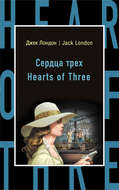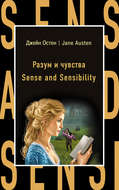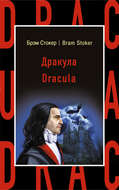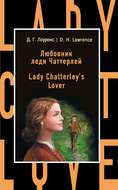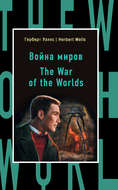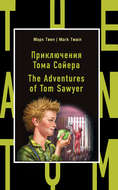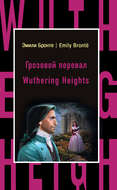Kitabı oku: «Разум и чувства / Sense and Sensibility», sayfa 4
Chapter 9
The Dashwoods were now settled at Barton with tolerable comfort to themselves. The house and the garden, with all the objects surrounding them, were now become familiar, and the ordinary pursuits which had given to Norland half its charms were engaged in again with far greater enjoyment than Norland had been able to afford, since the loss of their father. Sir John Middleton, who called on them every day for the first fortnight, and who was not in the habit of seeing much occupation at home, could not conceal his amazement on finding them always employed.
Their visitors, except those from Barton Park, were not many; for, in spite of Sir John’s urgent entreaties that they would mix more in the neighbourhood, and repeated assurances of his carriage being always at their service, the independence of Mrs. Dashwood’s spirit overcame the wish of society for her children; and she was resolute in declining to visit any family beyond the distance of a walk. There were but few who could be so classed; and it was not all of them that were attainable. About a mile and a half from the cottage, along the narrow winding valley of Allenham, which issued from that of Barton, as formerly described, the girls had, in one of their earliest walks, discovered an ancient respectable looking mansion which, by reminding them a little of Norland, interested their imagination and made them wish to be better acquainted with it. But they learnt, on enquiry, that its possessor, an elderly lady of very good character, was unfortunately too infirm to mix with the world, and never stirred from home.
The whole country about them abounded in beautiful walks. The high downs which invited them from almost every window of the cottage to seek the exquisite enjoyment of air on their summits, were a happy alternative when the dirt of the valleys beneath shut up their superior beauties; and towards one of these hills did Marianne and Margaret one memorable morning direct their steps, attracted by the partial sunshine of a showery sky, and unable longer to bear the confinement which the settled rain of the two preceding days had occasioned. The weather was not tempting enough to draw the two others from their pencil and their book, in spite of Marianne’s declaration that the day would be lastingly fair, and that every threatening cloud would be drawn off from their hills; and the two girls set off together.
They gaily ascended the downs, rejoicing in their own penetration at every glimpse of blue sky; and when they caught in their faces the animating gales of a high south-westerly wind, they pitied the fears which had prevented their mother and Elinor from sharing such delightful sensations.
‘Is there a felicity in the world,’ said Marianne, ‘superior to this? – Margaret, we will walk here at least two hours.’
Margaret agreed, and they pursued their way against the wind, resisting it with laughing delight for about twenty minutes longer, when suddenly the clouds united over their heads, and a driving rain set full in their face. – Chagrined and surprised, they were obliged, though unwillingly, to turn back, for no shelter was nearer than their own house. One consolation however remained for them, to which the exigence of the moment gave more than usual propriety; it was that of running with all possible speed down the steep side of the hill which led immediately to their garden gate.
They set off. Marianne had at first the advantage, but a false step brought her suddenly to the ground; and Margaret, unable to stop herself to assist her, was involuntarily hurried along, and reached the bottom in safety.
A gentleman carrying a gun, with two pointers playing round him, was passing up the hill and within a few yards of Marianne, when her accident happened. He put down his gun and ran to her assistance. She had raised herself from the ground, but her foot had been twisted in her fall, and she was scarcely able to stand. The gentleman offered his services; and perceiving that her modesty declined what her situation rendered necessary, took her up in his arms without farther delay, and carried her down the hill. Then passing through the garden, the gate of which had been left open by Margaret, he bore her directly into the house, whither Margaret was just arrived, and quitted not his hold till he had seated her in a chair in the parlour.
Elinor and her mother rose up in amazement at their entrance, and while the eyes of both were fixed on him with an evident wonder and a secret admiration which equally sprung from his appearance, he apologized for his intrusion by relating its cause, in a manner so frank and so graceful that his person, which was uncommonly handsome, received additional charms from his voice and expression. Had he been even old, ugly, and vulgar, the gratitude and kindness of Mrs. Dashwood would have been secured by any act of attention to her child; but the influence of youth, beauty, and elegance, gave an interest to the action which came home to her feelings.
She thanked him again and again; and, with a sweetness of address which always attended her, invited him to be seated. But this he declined, as he was dirty and wet. Mrs. Dashwood then begged to know to whom she was obliged. His name, he replied, was Willoughby, and his present home was at Allenham, from whence he hoped she would allow him the honour of calling tomorrow to enquire after Miss Dashwood. The honour was readily granted, and he then departed, to make himself still more interesting, in the midst of a heavy rain.
His manly beauty and more than common gracefulness were instantly the theme of general admiration, and the laugh which his gallantry raised against Marianne received particular spirit from his exterior attractions. – Marianne herself had seen less of his person that the rest, for the confusion which crimsoned over her face, on his lifting her up, had robbed her of the power of regarding him after their entering the house. But she had seen enough of him to join in all the admiration of the others, and with an energy which always adorned her praise. His person and air were equal to what her fancy had ever drawn for the hero of a favourite story; and in his carrying her into the house with so little previous formality, there was a rapidity of thought which particularly recommended the action to her. Every circumstance belonging to him was interesting. His name was good, his residence was in their favourite village, and she soon found out that of all manly dresses a shooting-jacket was the most becoming. Her imagination was busy, her reflections were pleasant, and the pain of a sprained ankle was disregarded.
Sir John called on them as soon as the next interval of fair weather that morning allowed him to get out of doors; and Marianne’s accident being related to him, he was eagerly asked whether he knew any gentleman of the name of Willoughby at Allenham.
‘Willoughby!’ cried Sir John; ‘what, is HE in the country? That is good news however; I will ride over tomorrow, and ask him to dinner on Thursday.’
‘You know him then,’ said Mrs. Dashwood.
‘Know him! to be sure I do. Why, he is down here every year.’
‘And what sort of a young man is he?’
‘As good a kind of fellow as ever lived, I assure you. A very decent shot, and there is not a bolder rider in England.’
‘And is that all you can say for him?’ cried Marianne, indignantly. ‘But what are his manners on more intimate acquaintance? What his pursuits, his talents, and genius?’
Sir John was rather puzzled.
‘Upon my soul,’ said he, ‘I do not know much about him as to all THAT. But he is a pleasant, good humoured fellow, and has got the nicest little black bitch of a pointer I ever saw. Was she out with him today?’
But Marianne could no more satisfy him as to the colour of Mr. Willoughby’s pointer, than he could describe to her the shades of his mind.
‘But who is he?’ said Elinor. ‘Where does he come from? Has he a house at Allenham?’
On this point Sir John could give more certain intelligence; and he told them that Mr. Willoughby had no property of his own in the country; that he resided there only while he was visiting the old lady at Allenham Court, to whom he was related, and whose possessions he was to inherit; adding, ‘Yes, yes, he is very well worth catching I can tell you, Miss Dashwood; he has a pretty little estate of his own in Somersetshire besides; and if I were you, I would not give him up to my younger sister, in spite of all this tumbling down hills. Miss Marianne must not expect to have all the men to herself. Brandon will be jealous, if she does not take care.’
‘I do not believe,’ said Mrs. Dashwood, with a good humoured smile, ‘that Mr. Willoughby will be incommoded by the attempts of either of MY daughters towards what you call CATCHING him. It is not an employment to which they have been brought up. Men are very safe with us, let them be ever so rich. I am glad to find, however, from what you say, that he is a respectable young man, and one whose acquaintance will not be ineligible.’
‘He is as good a sort of fellow, I believe, as ever lived,’ repeated Sir John. ‘I remember last Christmas at a little hop at the park, he danced from eight o’clock till four, without once sitting down.’
‘Did he indeed?’ cried Marianne with sparkling eyes, ‘and with elegance, with spirit?’
‘Yes; and he was up again at eight to ride to covert.10’
‘That is what I like; that is what a young man ought to be. Whatever be his pursuits, his eagerness in them should know no moderation, and leave him no sense of fatigue.’
‘Aye, aye, I see how it will be,’ said Sir John, ‘I see how it will be. You will be setting your cap at him now, and never think of poor Brandon.’
‘That is an expression, Sir John,’ said Marianne, warmly, ‘which I particularly dislike. I abhor every common-place phrase by which wit is intended; and “setting one’s cap at a man,” or “making a conquest,” are the most odious of all. Their tendency is gross and illiberal; and if their construction could ever be deemed clever, time has long ago destroyed all its ingenuity.’
Sir John did not much understand this reproof; but he laughed as heartily as if he did, and then replied,
‘Ay, you will make conquests enough, I dare say, one way or other. Poor Brandon! he is quite smitten already, and he is very well worth setting your cap at,11 I can tell you, in spite of all this tumbling about and spraining of ankles.’
Chapter 10
Marianne’s preserver, as Margaret, with more elegance than precision, styled Willoughby, called at the cottage early the next morning to make his personal enquiries. He was received by Mrs. Dashwood with more than politeness; with a kindness which Sir John’s account of him and her own gratitude prompted; and every thing that passed during the visit tended to assure him of the sense, elegance, mutual affection, and domestic comfort of the family to whom accident had now introduced him. Of their personal charms he had not required a second interview to be convinced.
Miss Dashwood had a delicate complexion, regular features, and a remarkably pretty figure. Marianne was still handsomer. Her form, though not so correct as her sister’s, in having the advantage of height, was more striking; and her face was so lovely, that when in the common cant of praise, she was called a beautiful girl, truth was less violently outraged than usually happens. Her skin was very brown, but, from its transparency, her complexion was uncommonly brilliant; her features were all good; her smile was sweet and attractive; and in her eyes, which were very dark, there was a life, a spirit, an eagerness, which could hardily be seen without delight. From Willoughby their expression was at first held back, by the embarrassment which the remembrance of his assistance created. But when this passed away, when her spirits became collected, when she saw that to the perfect good-breeding of the gentleman, he united frankness and vivacity, and above all, when she heard him declare, that of music and dancing he was passionately fond, she gave him such a look of approbation as secured the largest share of his discourse to herself for the rest of his stay.
It was only necessary to mention any favourite amusement to engage her to talk. She could not be silent when such points were introduced, and she had neither shyness nor reserve in their discussion. They speedily discovered that their enjoyment of dancing and music was mutual, and that it arose from a general conformity of judgment in all that related to either. Encouraged by this to a further examination of his opinions, she proceeded to question him on the subject of books; her favourite authors were brought forward and dwelt upon with so rapturous a delight, that any young man of five and twenty must have been insensible indeed, not to become an immediate convert to the excellence of such works, however disregarded before. Their taste was strikingly alike. The same books, the same passages were idolized by each – or if any difference appeared, any objection arose, it lasted no longer than till the force of her arguments and the brightness of her eyes could be displayed. He acquiesced in all her decisions, caught all her enthusiasm; and long before his visit concluded, they conversed with the familiarity of a long-established acquaintance.
‘Well, Marianne,’ said Elinor, as soon as he had left them, ‘for ONE morning I think you have done pretty well. You have already ascertained Mr. Willoughby’s opinion in almost every matter of importance. You know what he thinks of Cowper and Scott;12 you are certain of his estimating their beauties as he ought, and you have received every assurance of his admiring Pope no more than is proper.13 But how is your acquaintance to be long supported, under such extraordinary despatch of every subject for discourse? You will soon have exhausted each favourite topic. Another meeting will suffice to explain his sentiments on picturesque beauty,14 and second marriages, and then you can have nothing farther to ask.’ –
‘Elinor,’ cried Marianne, ‘is this fair? is this just? are my ideas so scanty? But I see what you mean. I have been too much at my ease, too happy, too frank. I have erred against every common-place notion of decorum;15 I have been open and sincere where I ought to have been reserved, spiritless, dull, and deceitful – had I talked only of the weather and the roads, and had I spoken only once in ten minutes, this reproach would have been spared.’
‘My love,’ said her mother, ‘you must not be offended with Elinor – she was only in jest. I should scold her myself, if she were capable of wishing to check the delight of your conversation with our new friend.’ – Marianne was softened in a moment.
Willoughby, on his side, gave every proof of his pleasure in their acquaintance, which an evident wish of improving it could offer. He came to them every day. To enquire after Marianne was at first his excuse; but the encouragement of his reception, to which every day gave greater kindness, made such an excuse unnecessary before it had ceased to be possible, by Marianne’s perfect recovery. She was confined for some days to the house; but never had any confinement been less irksome. Willoughby was a young man of good abilities, quick imagination, lively spirits, and open, affectionate manners. He was exactly formed to engage Marianne’s heart, for with all this, he joined not only a captivating person, but a natural ardour of mind which was now roused and increased by the example of her own, and which recommended him to her affection beyond every thing else.
His society became gradually her most exquisite enjoyment. They read, they talked, they sang together; his musical talents were considerable; and he read with all the sensibility and spirit which Edward had unfortunately wanted.
In Mrs. Dashwood’s estimation he was as faultless as in Marianne’s; and Elinor saw nothing to censure in him but a propensity, in which he strongly resembled and peculiarly delighted her sister, of saying too much what he thought on every occasion, without attention to persons or circumstances. In hastily forming and giving his opinion of other people, in sacrificing general politeness to the enjoyment of undivided attention where his heart was engaged, and in slighting too easily the forms of worldly propriety, he displayed a want of caution which Elinor could not approve, in spite of all that he and Marianne could say in its support.
Marianne began now to perceive that the desperation which had seized her at sixteen and a half, of ever seeing a man who could satisfy her ideas of perfection, had been rash and unjustifiable. Willoughby was all that her fancy had delineated in that unhappy hour and in every brighter period, as capable of attaching her; and his behaviour declared his wishes to be in that respect as earnest, as his abilities were strong.
Her mother too, in whose mind not one speculative thought of their marriage had been raised, by his prospect of riches, was led before the end of a week to hope and expect it; and secretly to congratulate herself on having gained two such sons-in-law as Edward and Willoughby.
Colonel Brandon’s partiality for Marianne, which had so early been discovered by his friends, now first became perceptible to Elinor, when it ceased to be noticed by them. Their attention and wit were drawn off to his more fortunate rival; and the raillery which the other had incurred before any partiality arose, was removed when his feelings began really to call for the ridicule so justly annexed to sensibility. Elinor was obliged, though unwillingly, to believe that the sentiments which Mrs. Jennings had assigned him for her own satisfaction, were now actually excited by her sister; and that however a general resemblance of disposition between the parties might forward the affection of Mr. Willoughby, an equally striking opposition of character was no hindrance to the regard of Colonel Brandon. She saw it with concern; for what could a silent man of five and thirty hope, when opposed to a very lively one of five and twenty? and as she could not even wish him successful, she heartily wished him indifferent. She liked him – in spite of his gravity and reserve, she beheld in him an object of interest. His manners, though serious, were mild; and his reserve appeared rather the result of some oppression of spirits than of any natural gloominess of temper. Sir John had dropped hints of past injuries and disappointments, which justified her belief of his being an unfortunate man, and she regarded him with respect and compassion.
Perhaps she pitied and esteemed him the more because he was slighted by Willoughby and Marianne, who, prejudiced against him for being neither lively nor young, seemed resolved to undervalue his merits.
‘Brandon is just the kind of man,’ said Willoughby one day, when they were talking of him together, ‘whom every body speaks well of, and nobody cares about; whom all are delighted to see, and nobody remembers to talk to.’
‘That is exactly what I think of him,’ cried Marianne.
‘Do not boast of it, however,’ said Elinor, ‘for it is injustice in both of you. He is highly esteemed by all the family at the park, and I never see him myself without taking pains to converse with him.’
‘That he is patronised by YOU,’ replied Willoughby, ‘is certainly in his favour; but as for the esteem of the others, it is a reproach in itself. Who would submit to the indignity of being approved by such a woman as Lady Middleton and Mrs. Jennings, that could command the indifference of any body else?’
‘But perhaps the abuse of such people as yourself and Marianne will make amends for the regard of Lady Middleton and her mother. If their praise is censure, your censure may be praise, for they are not more undiscerning, than you are prejudiced and unjust.’
‘In defence of your protege you can even be saucy.’
‘My protege, as you call him, is a sensible man; and sense will always have attractions for me. Yes, Marianne, even in a man between thirty and forty. He has seen a great deal of the world; has been abroad, has read, and has a thinking mind. I have found him capable of giving me much information on various subjects; and he has always answered my inquiries with readiness of good-breeding and good nature.’
‘That is to say,’ cried Marianne contemptuously, ‘he has told you, that in the East Indies the climate is hot, and the mosquitoes are troublesome.’
‘He WOULD have told me so, I doubt not, had I made any such inquiries, but they happened to be points on which I had been previously informed.’
‘Perhaps,’ said Willoughby, ‘his observations may have extended to the existence of nabobs, gold mohrs, and palanquins.16’
‘I may venture to say that HIS observations have stretched much further than your candour. But why should you dislike him?’
‘I do not dislike him. I consider him, on the contrary, as a very respectable man, who has every body’s good word, and nobody’s notice; who, has more money than he can spend, more time than he knows how to employ, and two new coats every year.’
‘Add to which,’ cried Marianne, ‘that he has neither genius, taste, nor spirit. That his understanding has no brilliancy, his feelings no ardour, and his voice no expression.’
‘You decide on his imperfections so much in the mass,’ replied Elinor, ‘and so much on the strength of your own imagination, that the commendation I am able to give of him is comparatively cold and insipid. I can only pronounce him to be a sensible man, well-bred, well-informed, of gentle address, and, I believe, possessing an amiable heart.’
‘Miss Dashwood,’ cried Willoughby, ‘you are now using me unkindly. You are endeavouring to disarm me by reason, and to convince me against my will. But it will not do. You shall find me as stubborn as you can be artful. I have three unanswerable reasons for disliking Colonel Brandon; he threatened me with rain when I wanted it to be fine; he has found fault with the hanging of my curricle, and I cannot persuade him to buy my brown mare. If it will be any satisfaction to you, however, to be told, that I believe his character to be in other respects irreproachable, I am ready to confess it. And in return for an acknowledgment, which must give me some pain, you cannot deny me the privilege of disliking him as much as ever.’

